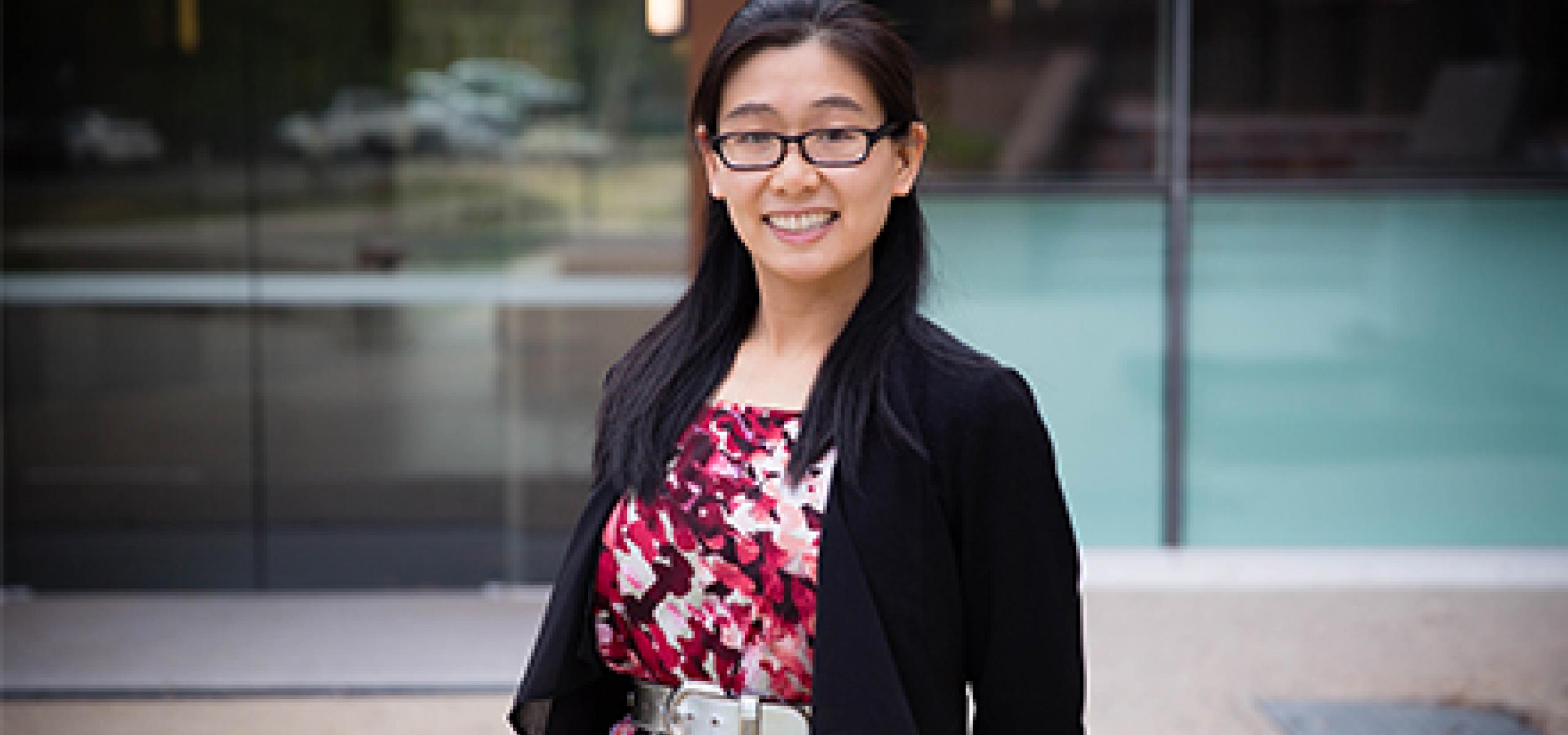
Lee-Anne Sim is a PhD candidate at the ANU College of Law.
To mark International Women's Day this year we are celebrating some of the women who make our College a world-leading institution for legal education and research.
Lee-Anne Sim is a PhD candidate at the ANU College of Law. Admitted to the Supreme Court of Victoria, she graduated with an LLB (first class honours)/BSc from Monash University, and received postgraduate qualifications in economics at ANU. Her scholarship has been published in International Affairs, a top five journal in international relations. Read her latest article here.
What inspired you to get into your field of research?
My interest in financial regulation stemmed from the Global Financial Crisis, which happened while I was in law school. Having a law degree meant I could get a job in financial regulation – an opportunity that many of those who lost their jobs and homes as a result of the crisis never had. I hope that through my work and research, I can make financial systems work better for those who do not have the same opportunity.
What is a teaching/research project you are currently working on that motivates you?
Globally, not just in Australia, public trust in financial sectors is at an all-time low, despite extensive regulatory reforms. As I argue in my article (published in this month’s issue of International Affairs), as long as reform processes play out as a fight between financial sectors and everyone else, more regulation will not restore public trust.
This is what motivates me to find a different approach to financial regulation. My PhD argues that financial regulation should be approached like a partnership agreement between financial sectors and regulators, rather than a set of battlelines between them.
Like all partnership agreements, it needs a purpose – such as promoting inclusive and sustainable economies; a purpose that has broad public appeal and falls squarely within the raison-d’être for having financial systems. I hope that my thesis will offer some practical reform options for promoting more inclusive and sustainable economies through financial systems.
Who is a woman in your field you look up to?
The summer before I started the PhD, I picked up by pure accident Kate Raworth’s book, Doughnut Economics (2018), from the local public library. I remember a speech from my university days in which a Nobel Prize laureate said that it is not the answer that wins you the Nobel Prize, it is the question. In her book, Kate Raworth is asking the right questions. We might be a long way from knowing how to run our economies in ways that are reliably inclusive and sustainable – but if we do not ask the question, we can guarantee that we will never find the answer.
What does International Women’s Day mean to you?
International Women’s Day raises some tough issues – violence in war, body image, public safety, date-rape, single parenting, domestic abuse or losing financial and social support in old age, and so on. Many of us are lucky enough that we have not had these experiences, and so cannot really understand or identify with them.
However, these issues are all the result of many broken relationships – between nations, across communities, within social circles and amid families. International Women’s Day gives men and women a reason to reach out across the globe to heal and build relationships – and that is something that anyone can sign up to.
What advice would you give your more junior self?
I still give myself this advice: it is that if I seek and do justice without love, I am nothing. Through my work and research, I hope to improve economic justice; to promote a more inclusive and sustainable world. This does not erase all the times that I treat my job as an end rather than a means, buy things that I do not need, and vote more for my own hip-pocket than for others.
However, knowing that I fail to do justice does not mean I stop trying. It means being patient, kind, humble, merciful and persevering with those who like me, whether consciously or not, are also failing to seek and do justice. I’m not there yet, but I hope that I am getting better at seeking and doing justice with love.
See more Inspiring Women of ANU Law